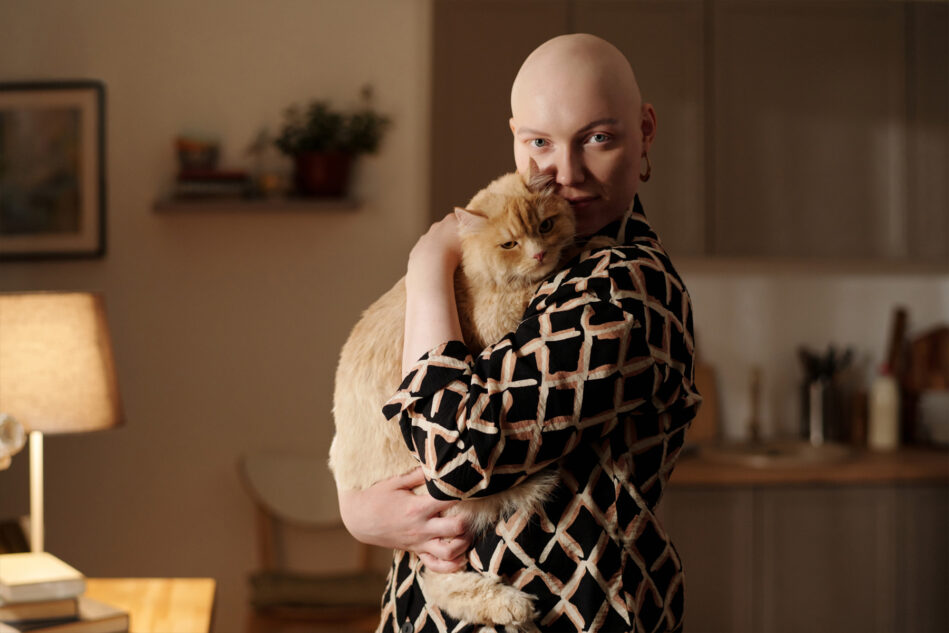Being a doctor is about more than just diagnosing and treating illnesses. It’s also about standing up for patients and advocating for their best interests.
Health professionals serve as solid allies for those in their care, ensuring patients’ rights and well-being are protected.
As a doctor and medical writer, I was contacted to perform this role last year after a friend suffered a terrible series of events. I wanted to recount this journey for her and for others going through this process, so that hopefully we can learn from the mistakes that were made.
Here, I would like to share a narrative from an incredible friend who requested I ghostwrite a detailed account of her experiences on her behalf, as she was too physically and emotionally fragile to write them for herself.
Over a series of interviews, I suddenly had to see the world through the eyes of a different person who was not only battling her way through chronic illness, but also the labyrinth of a convoluted Australian healthcare system. And the lessons learned apply to just about any healthcare system in the world.
Ultimately, despite her faith in a healthcare system she’d trusted all her life, she’d lose her battle to this terrible disease. The mismanagement of her care, however, may have accelerated her demise. Because of this error, she wanted to have her story shared so that others may understand challenges you may face if in the same situation.
Once a Person of Prior Perfection
(For confidentiality and respect, I have changed the name of my friend and patient to Sheila.)
Sheila was once the epitome of health and vitality. She was a sporty, active woman in her late 40s, a successful business executive, and the last person you would expect to fall victim to a life-altering illness.
Sheila had had no significant illnesses, particularly from a gynecological perspective. She only took Tylenol (acetaminophen) for the occasional headache and was opposed to any prescription medications unless necessary.
She only drank alcohol on special occasions and was a lifelong non-smoker.
Sheila firmly believed in the power of a balanced diet and regular exercise, especially for women’s health; her radiant energy was a testament to this belief.
Her life was a perfect picture of wellness until the day she was abruptly shaken by an unexpected diagnosis.
An Ominous Onset
In late 2021, Sheila began experiencing unexplained weight gain, abdominal distension, bloating, and then suddenly, over a weekend, an unusual vaginal discharge characteristically different from her regular menstrual periods.
Frightened and duly concerned, she sought immediate medical attention through her family physician.
Over the next few days, and after several blood tests (including a specific tumor marker called Ca-125), ultrasounds, CT scans, and biopsies, her doctor delivered the devastating news.
Sheila had insidiously developed Stage 4 ovarian cancer, where five-year survival rates can be as low as 30% once diagnosed.
The diagnosis was sudden and shocking, leaving Sheila and her family reeling. It felt as though a dark cloud had suddenly descended upon their previously sunny lives.
The Chemotherapeutic Catastrophe
Given the severity and progression of her cancer, Sheila was about to be plunged into the chaotic world of chemotherapy.
Her oncology team explained all the risks and benefits of the drugs, and eventually, it was decided that she would start the treatment almost immediately.
This initially consisted of two medications, Carboplatin and Paclitaxel, to be given over several cycles.
As her treatment began, Sheila was fraught with nausea, fatigue, and alopecia, which are common side effects of chemotherapy but are usually manageable.
At first she accepted a bit of hair loss, but then her hair started falling out in large clumps. So later, she shaved her head completely and wore trendy, brightly-coloured hairpieces to disguise her baldness.
The following year, as part of her treatment plan, it was recommended that Sheila have radical debulking surgery to have the tumors removed as well as her ovaries, a hysterectomy, and her omentum (the fatty tissue that envelops the intestines).
Around the same time, her oncologists also proposed that she start taking another chemotherapeutic agent to manage her cancer more aggressively, known as bevacizumab (Avastin).
Sheila wasn’t ready to add another treatment just yet. Her current regimen was already leaving her frail, and her quality of life was severely compromised. She needed to do some research on Avastin before agreeing to it.
During her next appointment at the oncology center, Sheila arrived with a series of no-nonsense questions about the medication, specifically about all the potentially fatal complications she had read about. Side effects of the drug ranged from severe stroke to severe hypertension and even critical bleeding.
Of note, the product information itself quoted a 0.3 to 3% chance that she may suffer from a perforated bowel, which can seriously lower quality of life and even be fatal.
Doctors confirmed her research, and said that her concerns were just. There was no avoiding the science. This drug would have serious consequences.
Now armed with this knowledge and feeling understandably alarmed regarding the statistics, Sheila and her family decided that they wanted to weigh up her options for a while longer before making any final decisions on Avastin. Shelia wanted time to think.
At this point, Sheila had opted out of going down the Avastin pathway. She decided that, unless no other alternative therapy became viable, she would not take Avastin. She asked her doctors to research other alternatives for her case instead.
An Unthinkable Oversight
The following month, Sheila attended for yet another cycle of what she thought would be her usual treatment according to her protocol. A few minutes into her infusion, Sheila became noticeably sweaty and fainted in her chair. The clinic nurse immediately attended to her.
When Sheila finally became lucid and conscious again, the nurse informed her that she would “just slow down the Avastin infusion.”
Perplexed, bewildered, and confused, Sheila asked the nurse for further clarification. She thought she had been in a dream. Again, the nurse vehemently mentioned she would “slow down the infusion” in the hope it would be more tolerable for her.
Sheila was understandably horrified as at no point had she consented to this medication. It had inadvertently been administered without her knowledge.
She demanded to see the oncology specialist immediately, and when he arrived, he apologized profusely and tried to alleviate Sheila’s worries. There had clearly been a gross oversight in obtaining Sheila’s consent.
Despite this, Sheila, accepting this mistake, signed a consent form retrospectively for the treatment she had received without her knowledge.
Feeling it was somehow too late to change her mind, she felt coerced into accepting further cycles with Avastin.
The purported side effects of Avastin have been well documented, she felt betrayed. She knew the treatment, while designed to prolong her life, was about to wreak havoc on her healthy cells, too.
Demise Danced in the Distance
Over the following months, Sheila became a “revolving door” patient at her local ER with multiple bowel perforations.
These caused intra-abdominal abscesses and infected enteric fistula, or an abnormal connection of organs, which eventually became untreatable. Not even with the most potent intravenous antibiotics could stop the infections, nor would they be improved by surgery.
Having developed intractable pain and discomfort, Sheila’s ability to cope now lay in bottles of oral morphine, anti-nausea tablets, and laxatives. Sheila had always enjoyed exquisitely-prepared food as one of her few pleasures. However, any culinary experience from this point consisted of an insipid-tasting, liquidized high-fiber diet.
Now rendered palliative, I knew Sheila’s days were numbered, so I phoned to inform her that my writing was complete. I’d outlined her process in full, and wanted her to know that her story would be shared.
However, little did I know it would be our last conversation.
Though the main aim of Sheila’s narrative was to inform her oncology service about their negligence, she also wanted to express her gratitude that they had kept her alive longer than she had imagined.
During this last call, I tried to tell Sheila that I had honored her exact wishes, but the Midazolam and Morphine syringe-driver, needed to make her comfortable, rendered her barely conscious.
I ended our emotional dialogue by sending her my heartfelt love as she was finally succumbing to the end of an agonizing journey.
A day later, Sheila died peacefully in the hospital with her family and palliative care nurses beside her.
I was bereft and inconsolable.
A Voice for Vigilance
Though the drug Avastin cannot be solely accountable for Sheila’s death, her experience emphasizes the importance of obtaining informed consent before embarking on any medical treatment program.
According to the Australian Commission on Safety and Quality in healthcare3, informed consent is defined as:
“Ensuring informed consent is properly obtained is a legal, ethical, and professional requirement on the part of all treating health professionals and supports person-centered care.”
Obviously, this principle should always apply to all patients, irrespective of the country they live in. In the United States, for example, the American Medical Association’s Code of Ethics states, “Informed consent to medical treatment is fundamental in both ethics and law. Patients have the right to receive information and ask questions about recommended treatments so that they can make well-considered decisions about care.”
While doctors have the knowledge and expertise to recommend treatments, patients have the right to understand the implications and make decisions about their bodies.
Any seemingly innocuous medications may have side effects, and patients should be made aware before commencing them.
Informed consent is a formality and a fundamental part of medical ethics. It respects a patient’s autonomy and involves them in their own healthcare decisions. It empowers them to ask questions and to seek clarification.
Sheila’s courageous battle against terminal cancer is perhaps an extreme illustration of the devastating consequences caused by miscommunication and a lack of timely, informed consent, let alone an error in drug administration.
Like Sheila, we too may suddenly fall ill or unwell at any stage during our lives. Depending on the treatment available, whether to accept it or not may be a difficult choice, even while having all the trusted, evidence-based information before us.
In any case, and as part of any decision-making process with healthcare professionals, we must always remember that we are not merely passive recipients of healthcare but active participants in safeguarding our well-being.
[Writer’s Note: Until now, I have never been sure whether the detailed account I sent to Sheila for her “final tick of approval” reached the intended destinations within her local health service, her personal doctors, and beyond. Hence, as a testament to her bravery, in memoriam, and as part of her legacy, it has been shared here on MedShadow in the hope her story will reach a wider audience, particularly other women.]







